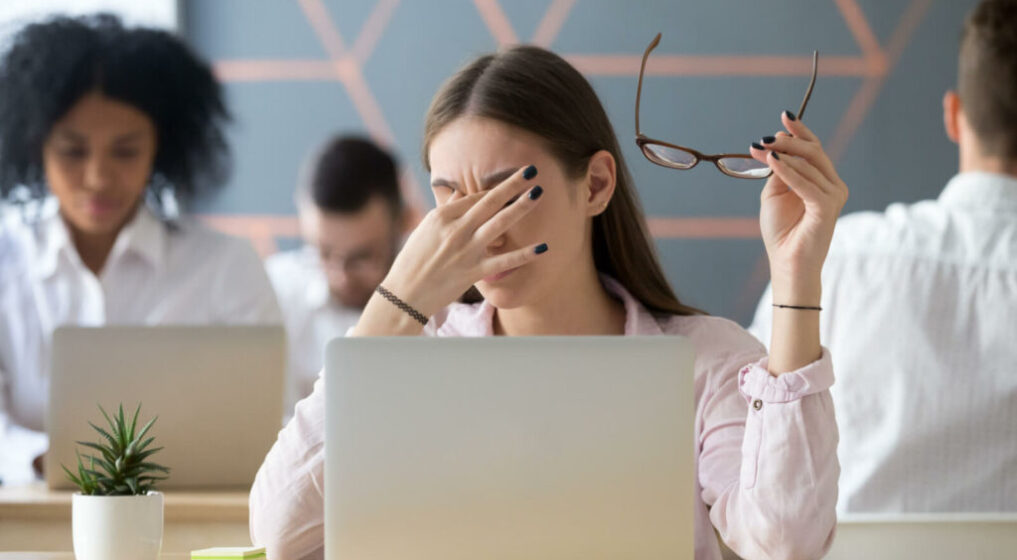- Our Locations: Swan St Eye Centre - 03 9428 0402
- Dingley Eye Centre - 03 9551 4244
- Our Locations:
Swan St Eye Centre - 03 9428 0402 - Dingley Eye Centre - 03 9551 4244

Screen time is something that we can’t seem to avoid in modern times. Seeing as everything we do incorporates technology in one way or another, it is worth considering the impact this might be having on your eye health. Today, we are going to discuss how screen time impacts our vision, common digital eye strain symptoms, and steps we can take to prevent digital eye strain.
If we were to sit back and calculate how much time we spend staring at screens, the number might be a little concerning. Our lives seem to be governed by screens, whether it’s our phones, tablets, laptops, or computers, but how long do we actually spend staring at them?
It’s no surprise who has the most as teenagers clock up around eight to nine hours of screen time every day, pre-teens around five to six, and adults around six to seven. With so many hours every day, it makes sense that more people than ever are experiencing digital eye strain symptoms. Over time, this can lead to Myopia, which impacts our ability to see things clearly when they are too far away.
Digital Eye Strain (DES) is a condition caused by spending too much time looking at screens. Unfortunately, it is something that affects a large percentage of people in today’s digital world.
Digital Eye Strain symptoms can range from mild discomfort to severe pain. If your screentime is high, there is a chance you will experience the following symptoms:
Tired Eyes – One of the most common Digital Eye Strain symptoms is tiredness or ‘heavy’ eyes.
Dry, Red, or Irritated Eyes – When we stare at screens, we tend to blink less, which can easily lead to red, irritated, or dry eyes.
Fluctuating Vision – Digital Eye Strain causes our vision to become blurry, making it difficult to focus.
Headaches – Over time, Digital Eye Strain can lead to frequent headaches and migraines.
One of the best methods for preventing digital eye strain is understanding why it happens. Prolonged screen time causes a lot of strain to our eyes, and it also causes us to blink less, which can have a massive impact on our overall eye health. The glare and reflection of screens can also cause visual discomfort, while blue light exposure can impact our contrast sensitivity. Additionally, if you work with screens and haven’t thought about a personalised vision solution, it may be time to do so. With the correct prescription, your chances of vision problems will significantly decrease.
Firstly, if you spend too much time staring at screens, visit an optometrist to find the perfect vision solution for digital screen use. They will be able to assess your vision, evaluate muscle function, analyse your blink rate, and provide ergonomic advice to enhance your health. Additionally, it may be beneficial to adjust your work setup, change the lighting and glare of your screen, and manage your blue light exposure. Taking the proper precautions will prevent you from needing vision correction treatment in the future.
If you spend long hours looking at screens, you should book an eye assessment at our Richmond or Dingley Clinic today. We will be happy to carry out a comprehensive digital eye strain evaluation and provide the guidance you need to ensure your vision remains as healthy as it can.
